Future Plans: Diocesan schools educate today’s students while planning for the next generation
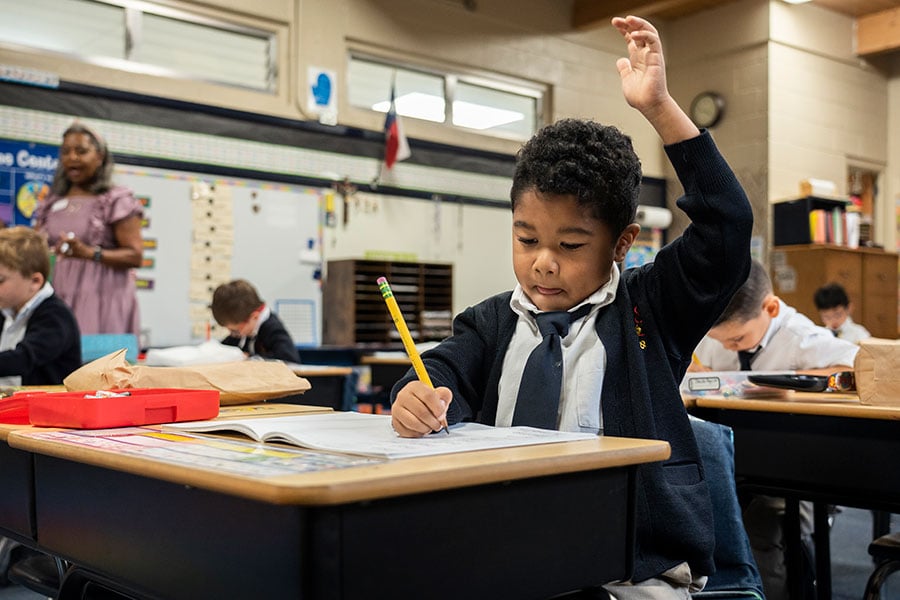
A kindergartner raises his hand during class at St. Peter the Apostle Catholic School May 12, 2023. (NTC/Juan Guajardo)
FORT WORTH - Like agriculture, education involves planting seeds that are carefully tended, with the hope that the seeds will set root, sprout, and eventually yield a bountiful harvest in the future. Agriculture and education are both forward-thinking enterprises.
In the Diocese of Fort Worth, several schools are undertaking work for the next generation — future Catholics who have yet to be born — with construction projects that increase or renovate classrooms and facilities.
Laura Behee, principal of St. Andrew Catholic School, explained the investment in the schools, saying, “Children in Catholic education are the future of the Church.”
Last fall, the Fort Worth school completed an extensive addition and renovation totaling more than 41,000 square feet. The TCU-area school added an early childhood development center, a new cafeteria, a new middle school wing, an oratory, and outdoor learning spaces.
“We were at capacity before the expansion. It needed to happen,” explained Behee.
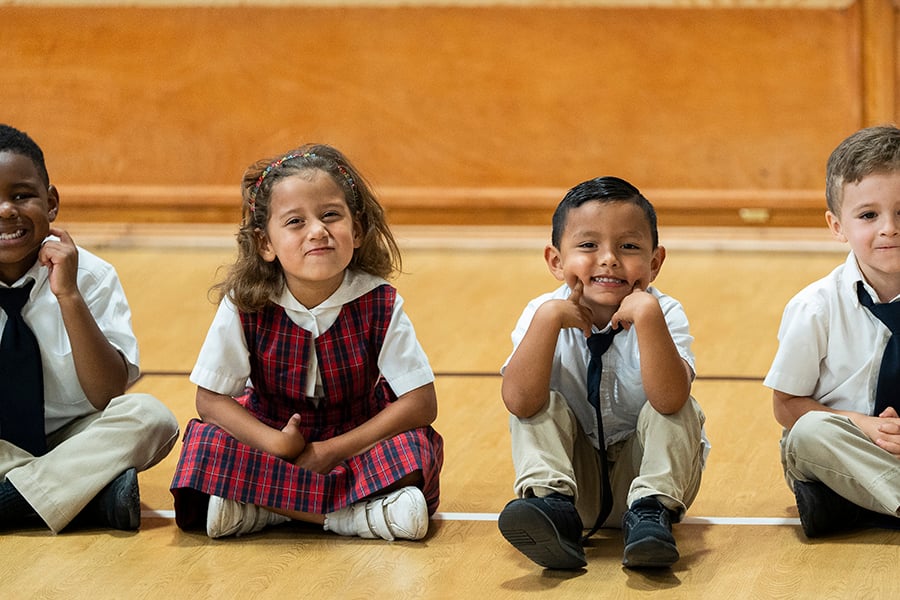
With the facilities already in use, the benefits are apparent, according to the principal.
A new laboratory for middle school has given middle school science classes the space, facilities, and material to conduct a broad range of hands-on experiments.
In early education, the school has added Montessori classes for pre-K3 through kindergarten, in addition to traditional preschool classes offered.
Increased enrollment in pre-K and kindergarten classes has generated a waiting list, but the extra classrooms in the early childhood building “have given us enormous space for growth,” said Behee.
The entire student body benefits from outdoor learning spaces, which are frequently used for science and religion classes.
In the center of the school stands the lofty wood and glass oratory, in which students, faculty, and staff have monthly Eucharistic Adoration. Behee said its central location makes it easy for students to drop in for quick prayer during lunch.
A project of this size, which totaled $13.5 million, came together with the generous assistance of the parish and other benefactors with a campaign that began in 2020, according to capital campaign co-chair, Kevin Nicoletti.
The expansion was the single largest improvement to the school, which opened in 1954. Nicoletti credits the power of the Holy Spirit and overwhelming community support for the campaign’s success, which “exceeded our own ambition,” he said.
With the physical expansion complete, Behee said time is ripe to update the school’s five-year strategic plan, which will include upgrades to the athletic facilities across the street, improvements to the fine arts program, and even vegetable gardens and a chicken coop.
“There’s more to do. Even though this space looks to be complete, there’s always things to consider,” said Behee.
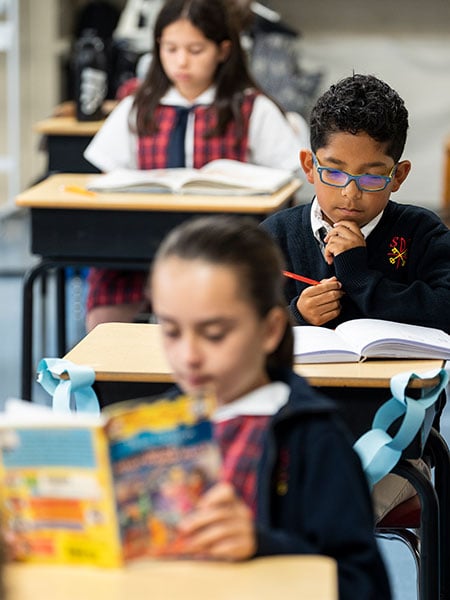
RAPID RESPONSE
After 18 years as a Catholic school principal in Texas, Susan Flanagan is accustomed to problem-solving.
But the St. Martin de Porres Catholic School principal said she’s had to be “creative” with finding spaces for the students, faculty, and staff of the growing Prosper school, such as using the parish hall for music class and making do with a copy room for a teacher’s office.
She’s seen the enrollment increase from 159 to 365 in her five years of leadership at the school, which moved to its current location in 2017 after opening in The Colony in 2012.
When the school year begins in August, portable classrooms will allow the school to add a third kindergarten class and split the fifth grade into two sections.
Demand for a Catholic education is strong in eastern Denton County. The school has waiting lists for pre-K3, pre-K4, kindergarten, first, sixth, and seventh grades.
Area families understand “Catholic school is a way to share the faith beyond weekly Mass. It develops future saints,” said Flanagan, emphasizing that lessons center around faith and virtues.
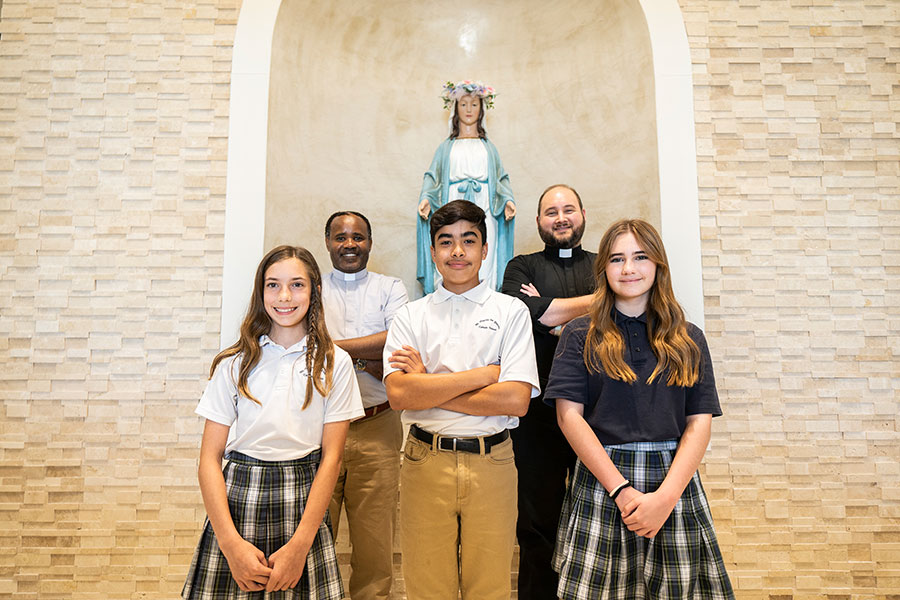
A $6.5 million project is underway which will add eight classrooms and a gymnasium with bleachers and a stage.
According to Flanagan, Bishop Michael Olson’s support has been “invaluable” as the school faces the challenges of rapid growth. “He feels strongly about the importance of Catholic education,” she said.
The school’s surge in enrollment reflects the population boom in Prosper and the nearby communities of Little Elm and Frisco. St. Martin de Porres Parish has grown from 900 families to 2,000 families in Flanagan’s five years at the school.
Although there’s no end in sight to community development, Flanagan said she and Pastor Stephen Hauck believe this will be the final addition to the school.
“Our school is like a family,” explained the principal. “We want it to be small enough to know all the kids.”
She anticipates expanding to two sections per grade for kindergarten through eighth, and three sections per grade for the youngest students. Enrollment will be “absolutely full” with 450 students, a level she foresees reaching within ten years.
ENDURING LEGACY
In 1890, the first German Catholic settlers of Muenster agreed to build a Catholic school even before they built the town’s church or rectory.
The legacy of Catholic education continues more than 130 years later. Sacred Heart Catholic School Principal Nisa Lagle explained that a $4 million capital campaign will provide a new heating and cooling system and restrooms in the grade school, new bleachers and field house for the football stadium, and miscellaneous other improvements and renovations.
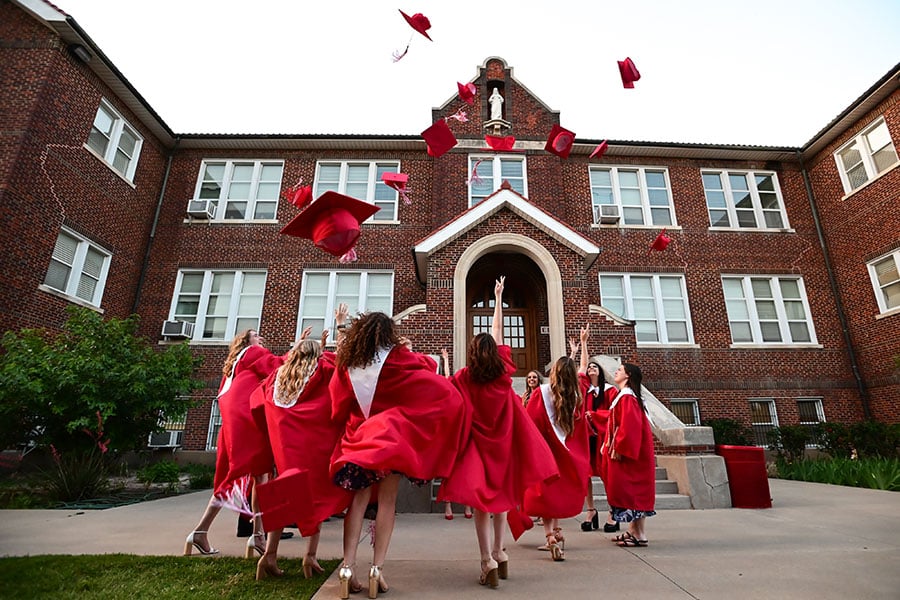
The current elementary facility was completed in 1925, and the high school in 1938. Maintaining the historic buildings while remaining mindful of their integrity and character can be a challenge, the principal admitted. The sturdy buildings weren’t built with Wi-Fi in mind, she laughed, but upgrading the facility to provide a modern, excellent education is essential.
The faculty and administration are determined that the graduates “have everything they need to be competitive wherever they go [to college], but still maintain the sweetness of a small community,” she said.
As the students leave for college, Lagle said, their Catholic education has prepared them by teaching them to think independently, by developing the whole person — academically, physically, and spiritually — and by providing an extended family in the close-knit parish and school.
A family extending for generations into the past; a family preparing for students in the future.
